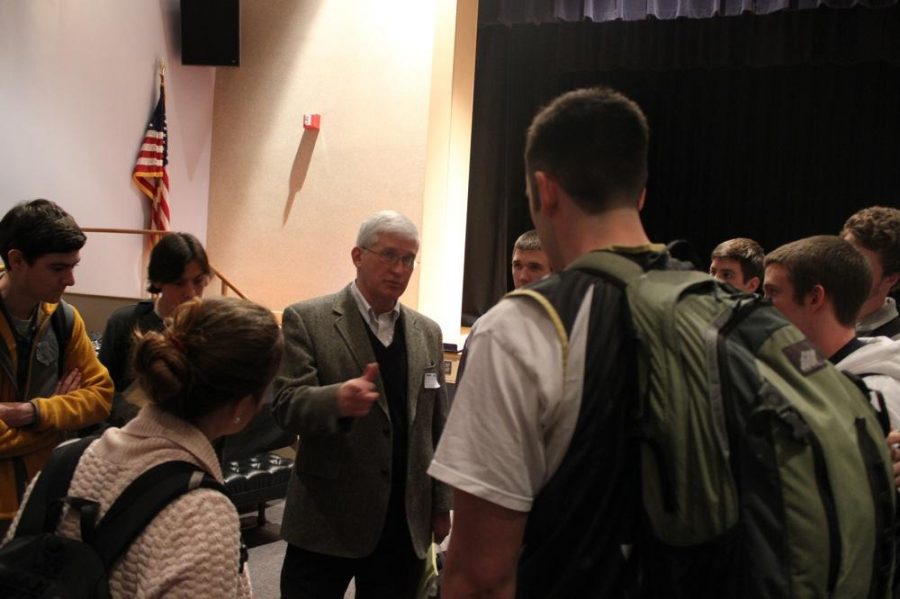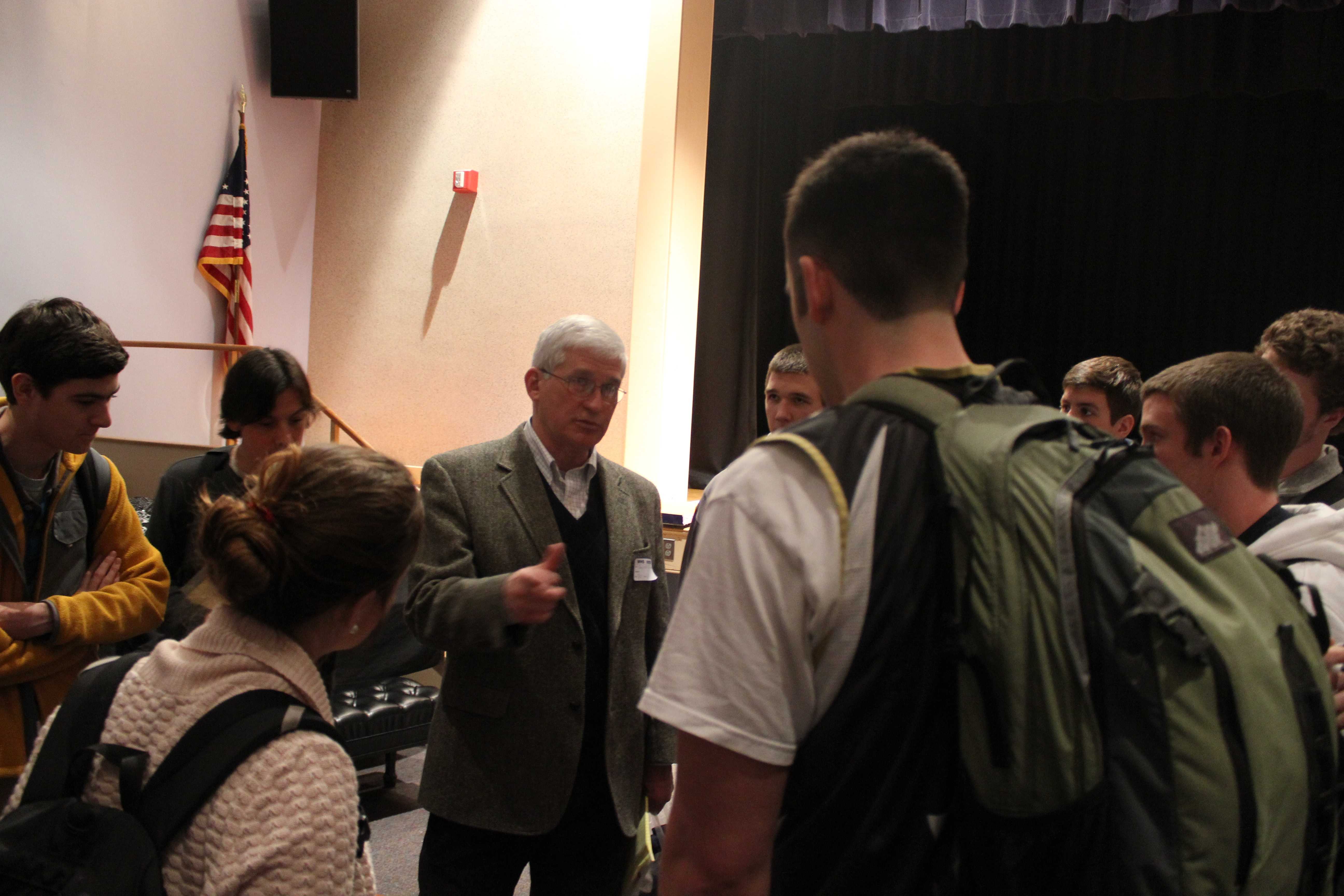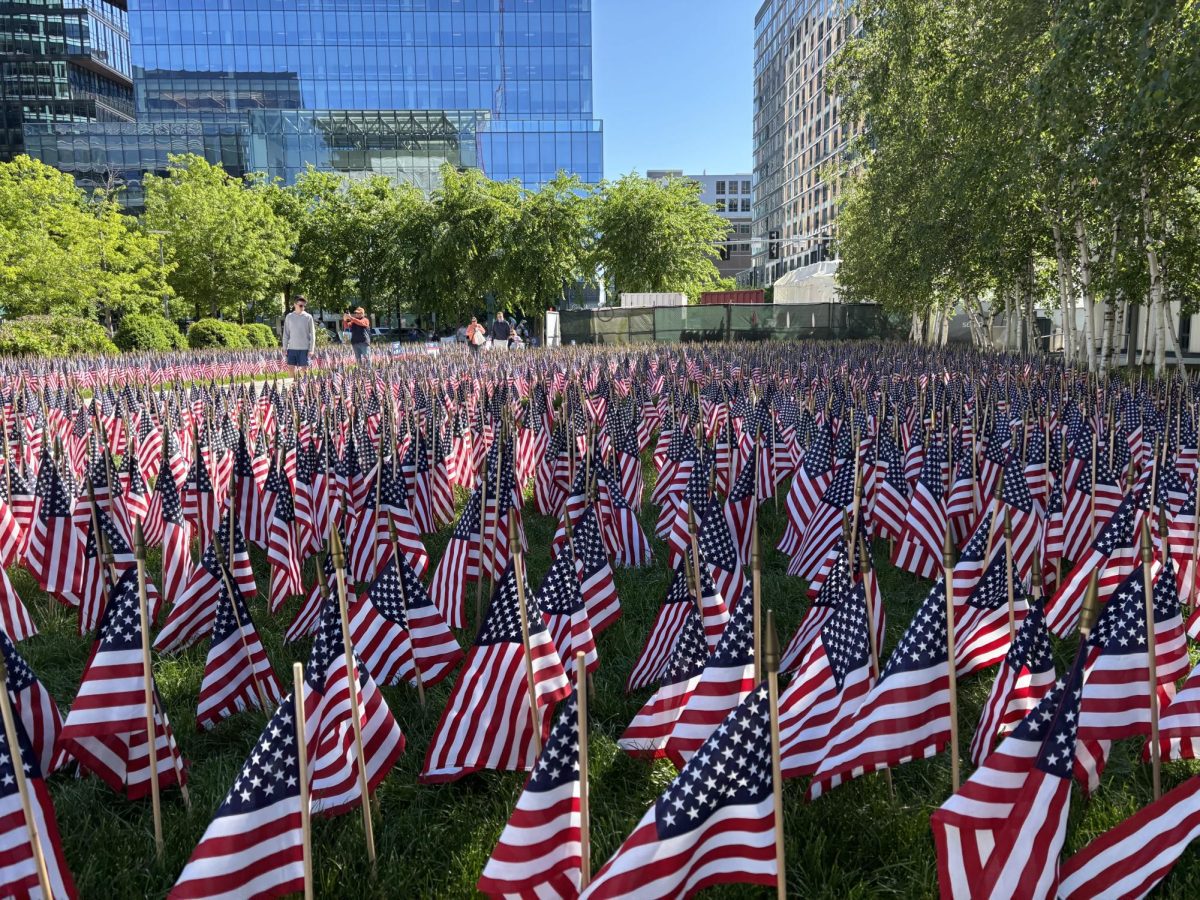Andrew Bacevich, a professor of International Relations at Boston University and a retired career officer in the United States Army, visited Walpole High School on March 22 and lectured to International Relations students on the historical context of relations between the West and the Islamic World and the recently started war in Libya. He discussed world events beginning during World War I, when Allied Britain and France partitioned the Ottoman Empire into several new nations – Yemen, Lebanon, Iraq, Syria, Jordan, and others. Set in place of the dissolved Ottoman Empire, a new Euro-centric Middle East was established in favor in Western interests. Along with the New Middle East, Western powers assumed that whatever ailments that may arise in the Middle East – from instability to terrorism – could and should be fixed by the West’s intervention. Bacevich challenged this assumption, arguing that there is an “abundance of evidence Western influence creates new problems” rather than solving them.
He then advanced on a brief summary of US Policy in the Middle East, starting at the conclusion of World War II, and a process of transfer of power that lasted from 1945 to 1980 whereby the United States replaced Great Britain as the “policeman of the Middle East”. In the 1950s and 60s, during the Cold War, the American military focused primarily on Western Europe and Eastern Asia, with very little troops in the Middle East. In 1953, Bacevich reviewed, the UK and US overthrew the democratically elected government of Iranian Prime Minister Mohammad Mosaddegh, replacing him with Mohammad-Rezā Shāh Pahlavi who was friendly to Western interests. Bacevich then discussed January 23, 1980, when Jimmy Carter, in his State of the Union Address, stated that the United States would use military force if necessary to defend its national interests, primarily oil, in the Persian Gulf region:
“The region which is now threatened by Soviet troops in Afghanistan is of great strategic importance: It contains more than two-thirds of the world’s exportable oil. The Soviet effort to dominate Afghanistan has brought Soviet military forces to within 300 miles of the Indian Ocean and close to the Straits of Hormuz, a waterway through which most of the world’s oil must flow. The Soviet Union is now attempting to consolidate a strategic position, therefore, that poses a grave threat to the free movement of Middle East oil.”
This policy, which has been followed by every president since Carter regardless of political party, began active military intervention in the Middle East justified by an array of purposes. This policy was most prominent with George H.W. Bush’s Operation Desert Storm, justified by the need to contain Saddam Hussein, who had previously been supported by the US in the First Persian Gulf War. More recently, the Invasion of Afghanistan in 2001 and the Invasion of Iraq in 2003 have demonstrated the USA’s continued involvement in the Middle East.
Bacevich contends that “if history has any meaning, we should not be optimistic about western influence in Libya”. He brought up 3 questions for students to consider. The first question he posed was “What exactly is the mission in [Libya] and when do we know when it is accomplished? Is the mission simply to halt pro-Gaddafi forces or to go further and install a government friendly to Western interests? The current nominal justification is ‘Responsibility to Protect’ Citizens, or the proposition that there are circumstances when either the government has failed to protect or has directly violated the well-being of citizens that arises to such a level where outsiders are called to intervene”. Bacevich stated that despite Obama’s nominal intention to limit the US role in Libya, a new can of worms will inevitably be opened to install a new government in place of Gadaffi’s regime. He brought up the other vital questions of “What will this cost?” and “How long will it take?”
If the USA is truly involved to protect citizens, Bacevich asked why the world never get involved in the genocide in Rwanda, or the current human right abuses in Bahrain,the Congo, Zimbabwe and numerous other places in the world where brutality exists on a much larger scale. Bacevich asked students to ponder if the US government has the responsibility to protect the entire world.
Bush got the United States involved in the Iraq War without having the consent of the United Nations, unilaterally. That said, Congress passed a resolution allowing this war to be started. What we have today is the opposite – the United Nations got involved, but not Congress. The Constitution vests authority in the Congress with checks and balances, who has the authority when to go to war. “Obama is not following the Constitution, are we content with that?”, Bacevich asked. “Wouldn’t it make more sense for Obama to check with both the Congress and the United Nations?”
Bacevich left these questions open for students to consider and to spark interest in international affairs, which we all have a stake in. Afterwards, he left the floor open to questions from students, and many students participated.










